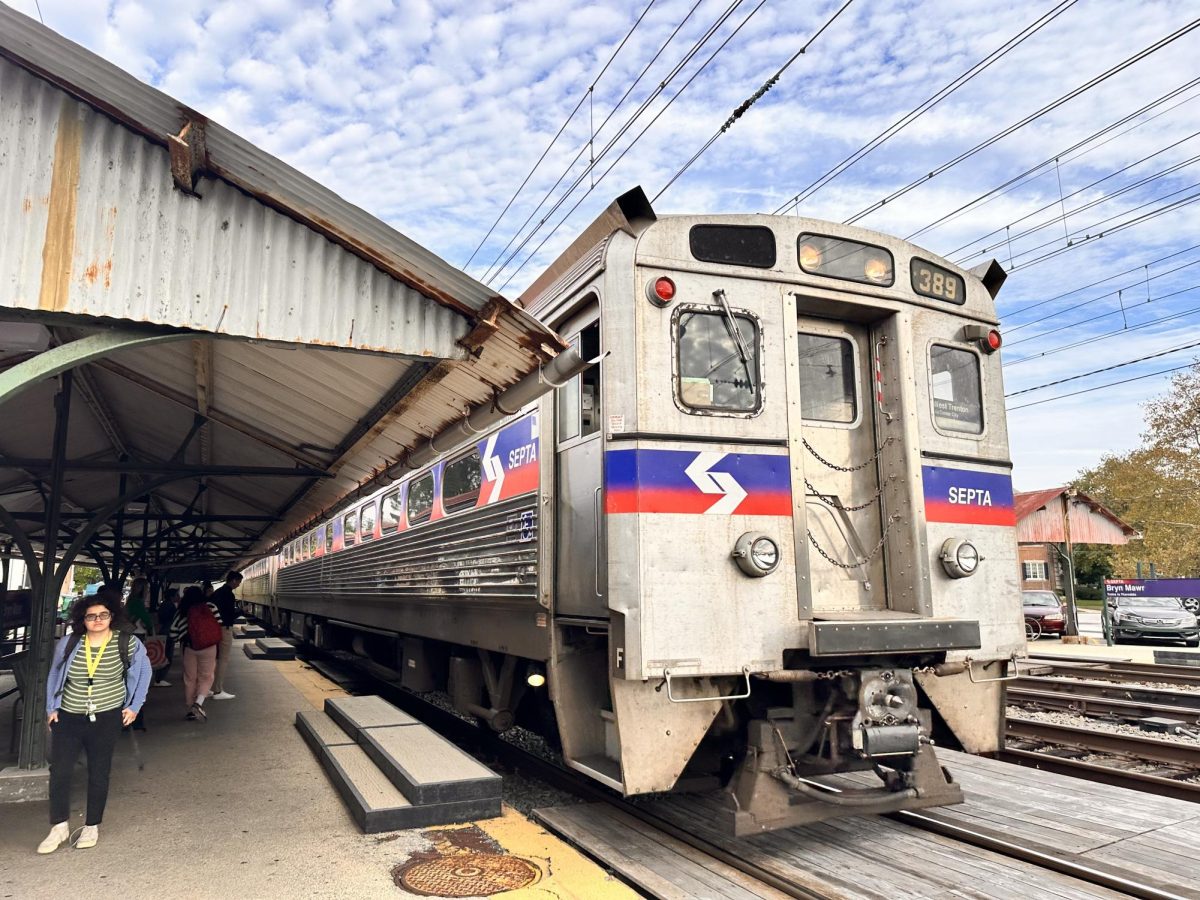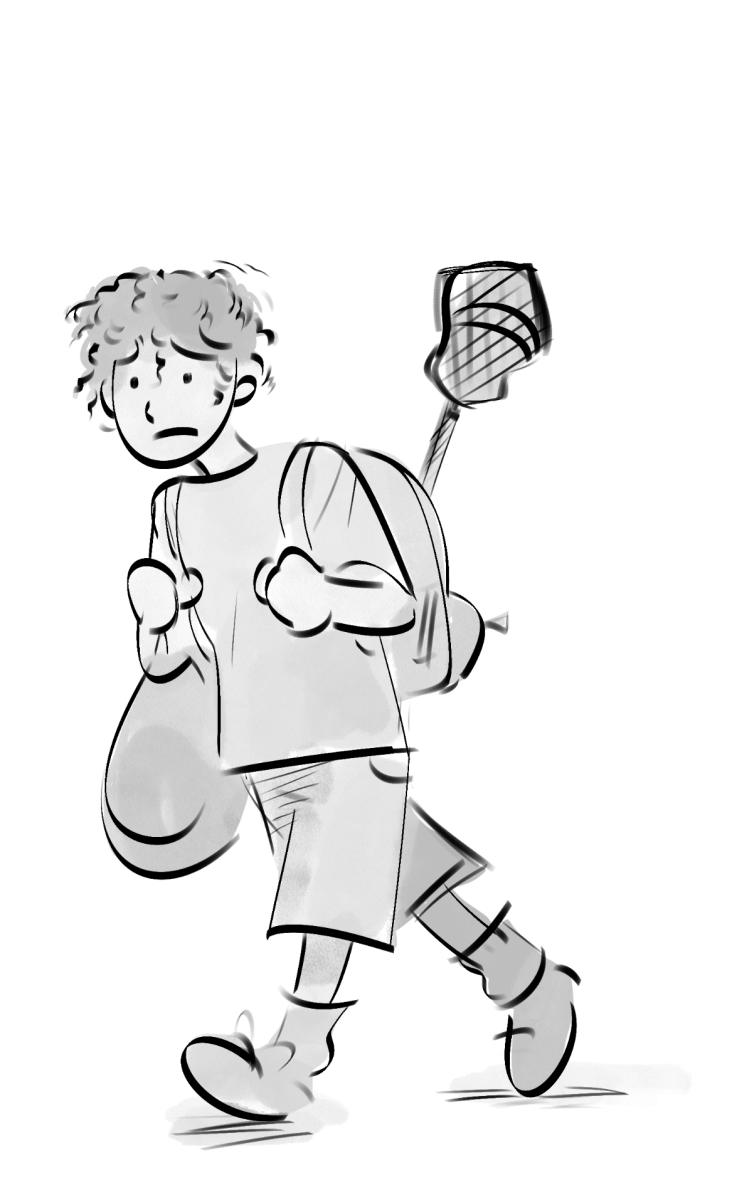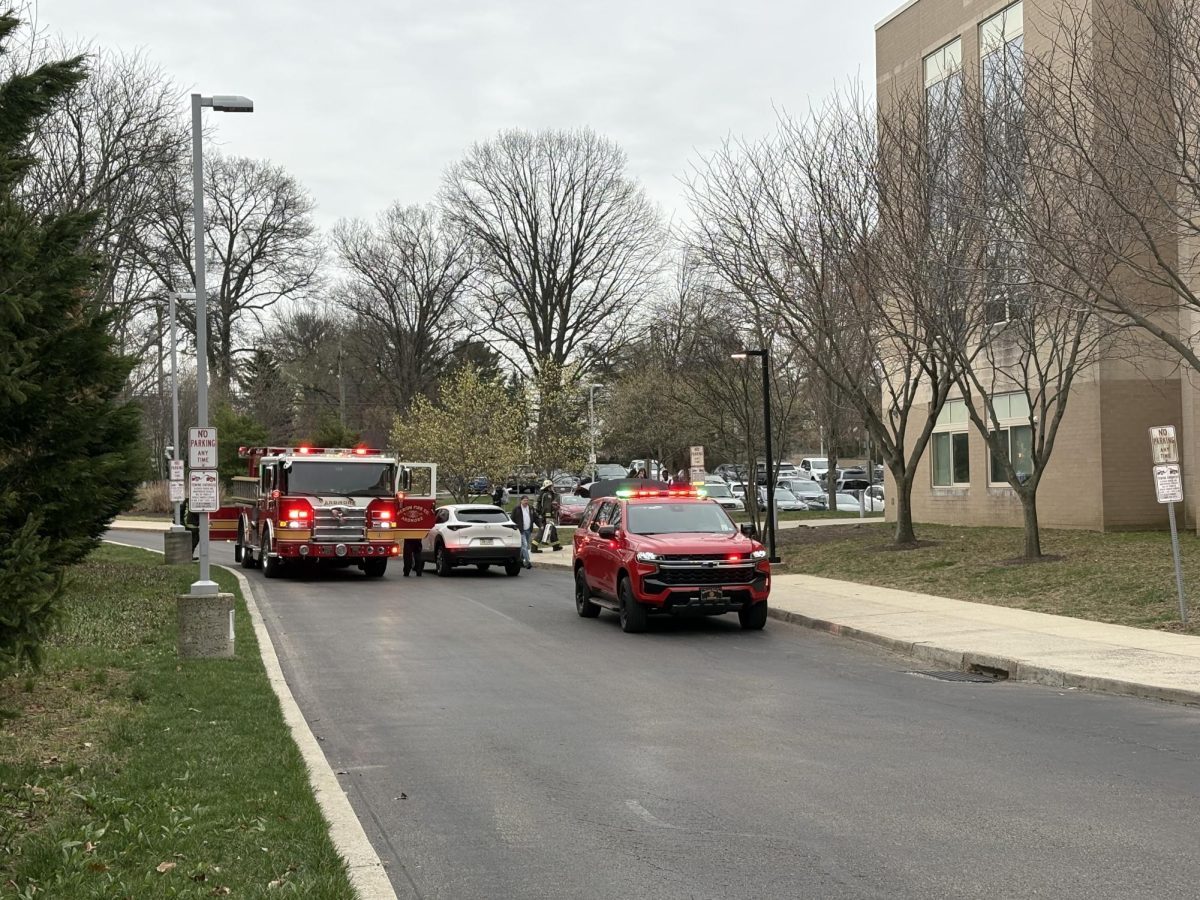Glaring red signs have appeared in stores across the township, warning of a new ordinance banning plastic grocery bags. While many glance over these messages without a second thought, curious residents are left asking: What are these new policies, and who are the people behind them?
Put simply, the Lower Merion Board of Commissioners has passed an ordinance banning single-use plastic bags throughout the township, starting on January 1. This ordinance is part of a larger sustainability effort by the township that includes a potential ban on gas-powered leaf blowers, contracts to grow and preserve shade tree canopy, moves towards energy efficiency and renewable energy sources, and more.
These efforts are being spearheaded by Paloma Villa, the Township Sustainability Manager. She works, along with the township’s Environmental Advisory Council and the Board of Commissioners, to address the question, “What can we do as a township to help our community members make more sustainable choices, or to help them understand the issues?” On that front, Villa hopes the plastic bag ban will help raise awareness about single use plastic, while reducing the amount of waste produced in LM.
Villa does recognize that a ban on plastic bags was “low hanging fruit,”: Something easy to implement that falls undeniably short of a full transition to renewable energy.
But the impact shouldn’t be underestimated either: Lower Merion township alone uses over 21 million plastic bags per year. “Even if only half the businesses actually comply with the ordinance, it’s still a huge amount of waste that’s getting reduced,” Villa says. The ordinance also comes as welcoming news to local conservationists, who eagerly await the decrease in plastic pollution.

As displayed in grocery stores across the township, the plastic bag ban will be accompanied by a minimum 10 cent fee for reusable or recyclable bag alternatives. This fee aims to help local businesses recoup the costs of more expensive paper or reusable bags, while also serving to discourage customers from taking bags they don’t need. The goal is that shoppers, when presented with a fee, will rethink how much they want a bag and reduce their waste even further.
Not to worry, there won’t be legal consequences for being caught red handed with a plastic bag. Instead, the ban will be enforced against local retailers, starting with a warning before escalating to fines of 100, 200, and finally 500 dollars for repeated infractions. Moreover, the township plans to enforce the ordinance mainly through education, and by encouraging township residents and business owners to make the switch.
The ordinance won’t be enforced until January of 2024, and Villa expects more feedback from the community once that happens. For now though, reception to the ordinance has been mostly positive, with many community members wondering, above all else, “What took so long?” Nearly fifteen municipalities in Pennsylvania have already implemented similar ordinances. Despite this, Villa has heard concerns from specific businesses, and some residents are worried about the impact the switch will have on local stores.
When asked, the manager of Stoltzfus Family Produce recognized that the ban is “definitely better for the environment, but it will come at a cost to the businesses,” even as the township aims to offset the increased cost of paper bags by requiring businesses to charge a 10 cent fee. The manager also noted that some small business owners were concerned about using up their pre-existing supply of plastic bags, but added that she’s grateful they were “given a pretty good amount of heads up to get through [their] stock.”
Thankfully, the impacts on most businesses seem to be small. When asked how the ban would impact Di Bruno Bros, a local retailer, the manager stated that “We have no opinion one way or another, just because most producers already have paper bags options, and we’ve had reusable bags for a while.” The ordinance is similarly unlikely to negatively impact residents, many of whom already own reusable bags.
These plans are part of a wider effort by Lower Merion township to implement the township sustainability plan, an over 80 page document meant to guide Lower Merion towards environmentally friendly policies and a goal of being carbon neutral by 2050. The plan was created, with the help of stakeholders from across LM, by the township’s Environmental Advisory Council (EAC), a body of scientists and community members that advise elected officials on policy. The sustainability plan lays out five main goals: Energy Transition, Natural Resource Management, Education and Engagement, Mobility, and Waste Minimization. Throughout 2023 and into the future, this plan will be put into place through outreach efforts, changes to the municipal budget, and ordinances like the plastic bag ban. For each new ordinance, the EAC makes a recommendation that then goes through township staff approval before finally being implemented by the board of commissioners, a group of elected representatives from different areas of the township that generally function as much of our local government.
Next up on the docket for the EAC and board of commissioners is a potential ordinance banning gas powered leaf blowers, most likely coming mid 2024. Local government has found that leaf blowers are widely disliked by the community for “reasons that span from everything from just the noise, to the physical particles and dust, to the use of gasoline,” says Villa. Most importantly, leaf blowers are two stroke engines, which are not regulated for pollution the way that cars or most pieces of gas powered technology are. This makes their emissions much higher than similar machines.
Villa stressed that ordinances, laws mandating certain actions from residents and businesses, are mostly a last resort for the township. Much of the environmental action the municipality takes and is taking is in the form of zoning, budgets, and outreach programs, that are less impactful on everyday residents. The township’s plans also include efforts to preserve, and hopefully grow, the area’s tree canopy with a contract to plant 200 trees per year, to replace damaged shade trees. Simultaneously, the board of commissioners is looking to complete a transition to renewable and sustainable energy use. In 2021, the township signed a contract to massively increase energy efficiency in township buildings and switch all street lights over to LEDs, and is looking to include money for solar panel installations in the 2024 municipal budget, all of which can be completed without an ordinance.
For LM students, Villa hopes the township can recruit more youth to Lower Merion’s Environmental Ambassador program. The low commitment program revolves around receiving emails from Villa and the township about sustainability, and committing to share that information with your community. From there, students can also sign up to be a part of working groups focused around different sustainability priorities, to contribute meaningfully to new environmental policies in the township.
Villa also described collaborating with district representatives on the sustainability plan when it was created, and added that “a lot of what’s in the township sustainability plan could just be adopted by the school district, if someone there took the time to look through the plan and pick out things to implement. A lot of the stuff we’re doing, they could do without reinventing the wheel.”
For now, LM students are likely to see the impacts of Villa’s work at the grocery store long before they see it in the classroom. From a ban on plastic bags, to behind the scenes energy and tree planting changes, the township is making small but steady steps towards a greener future. Just make sure, starting this January, to grab your reusable bags whenever you go shopping, and maybe keep a couple dimes in your pocket, just in case.






